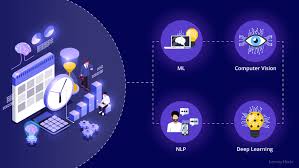In today’s legal landscape, the integration of Artificial Intelligence (AI) into legal workflows is no longer just a futuristic concept. It’s a practical solution that’s transforming the way legal professionals manage cases, analyze documents, and interact with clients. This integration is proving indispensable in boosting both efficiency and accuracy across various legal processes. But amidst all these advancements, one question arises: will AI replace lawyers?
This article will explore how AI is making significant inroads into the legal industry and why it’s becoming an essential tool for law firms and legal departments.
Streamlining Document Management
Legal work often involves handling vast amounts of documents, from case files to contracts. Handling these documents manually is not only a time-consuming process but also susceptible to mistakes. AI technologies, such as natural language processing and machine learning, facilitate a more efficient approach to document management. These systems can automatically categorize, file, and retrieve documents based on content and context, significantly reducing the time professionals spend on administrative tasks.
AI-powered tools also excel in extracting and synthesizing relevant information from large datasets. This capability is especially useful in due diligence and litigation processes, where sifting through thousands of documents quickly is critical. By automating these tasks, AI frees up legal professionals to focus on more strategic activities, ultimately increasing productivity and reducing overhead costs.
Enhancing Legal Research
Legal research is another area where AI is making a substantial impact. Traditional legal research methods are notoriously labor-intensive, often requiring hours of sifting through legal databases to find relevant precedents and rulings. AI-driven legal research tools can streamline this process by quickly scanning through vast amounts of legal texts to highlight the most pertinent information.
These tools are not just fast but also increasingly sophisticated, capable of understanding complex legal jargon and providing contextual insights. This speeds up the research process and enhances the accuracy of the findings, helping ensure that lawyers have the most relevant and up-to-date information at their fingertips.
Improving Accuracy in Legal Drafting
Accuracy in legal drafting is paramount, as even minor errors can lead to significant legal repercussions. AI-powered drafting tools help mitigate this risk by automating parts of the drafting process. These tools use advanced algorithms to ensure that the language used is not only legally sound but also tailored to the specific needs and risks of the client’s case.
Furthermore, AI systems can analyze past legal outcomes to suggest the most effective phrasing and clauses for contracts and other legal documents. This improves the quality of the documents and helps standardize legal texts across the firm, ensuring consistency in legal arguments and contractual agreements.
Predictive Analytics in Legal Decision-Making
One of the most exciting applications of AI in law is predictive analytics, which uses data modeling to predict the outcomes of legal decisions. As lawyers leverage this technology to enhance strategic planning, many wonder, ‘will AI replace lawyers?’ While AI is transformative, it primarily serves to augment the decision-making process, not replace the nuanced judgment of experienced legal professionals. Instead of replacing lawyers, AI tools help them analyze case patterns, assess risks, and make more informed decisions. This partnership between AI and legal experts ensures that the human element, critical for empathy, ethical considerations, and complex reasoning, remains at the forefront of legal practice.
Enhancing Client Interactions
AI is also transforming how lawyers interact with their clients. AI-driven communication tools, such as chatbots, can provide clients with instant responses to their inquiries, improving client service without requiring direct lawyer intervention for routine questions. This technology allows lawyers to communicate more consistently with their clients while dedicating their time to more complex concerns.
The integration of AI into legal workflows is revolutionizing the industry by enhancing efficiency, accuracy, and client service. As these technologies continue to evolve, their effect on the legal sector is expected to grow even further, making AI competence an essential skill for legal professionals.






